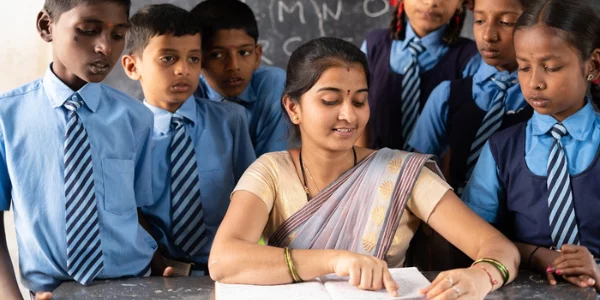
I. Introduction
Education is the cornerstone of personal and societal growth. In a rapidly changing world, understanding the diverse forms of education becomes essential.
II. Formal Education
Formal education, often associated with traditional classrooms and structured curricula, plays a pivotal role in shaping individuals. It provides a foundation for academic knowledge and critical thinking skills.
III. Informal Education
Beyond the confines of classrooms, informal education takes place. This involves learning from daily experiences, interactions, and self-directed exploration, contributing to a well-rounded education.
IV. Non-Formal Education
Characterized by flexibility and learner-centric approaches, non-formal education accommodates diverse learning styles. Workshops, community programs, and online courses fall under this category.
V. Blurring Boundaries
The distinctions between formal, informal, and non-formal education are becoming less defined. The interconnected nature of these types is reshaping the educational landscape.
VI. Pros and Cons
While formal education offers a structured path, it may lack flexibility. Informal and non-formal education, on the other hand, can be adaptable but might lack standardized assessments.
VII. Tailoring Education
Choosing the right type of education is crucial. Tailoring education to individual needs ensures a more effective and fulfilling learning experience.
VIII. Evolving Educational Landscape
Technological advancements, such as online learning platforms and virtual classrooms, are revolutionizing education. Staying updated on these trends is essential.
IX. Impact on Society
Education not only molds individuals but also influences communities. The societal impact of different education types is far-reaching.
X. The Role of Technology
Digital transformation is omnipresent in education. Embracing technology enhances accessibility, providing education to a wider audience.
XI. Personalized Learning
Recognizing the diversity of learners, personalized learning approaches cater to individual strengths and preferences, fostering a more inclusive educational environment.
XII. Lifelong Learning
Education extends beyond formal years. Lifelong learning promotes continuous personal and professional development.
XIII. Navigating Career Paths
Aligning education with career goals is vital. Different types of education offer unique pathways to diverse career opportunities.
XIV. Cultural and Global Perspectives
Education varies across cultures and regions. Understanding these differences fosters global perspectives and cultural appreciation.
XV. Conclusion
In conclusion, the diverse types of education contribute to a holistic learning experience. As boundaries blur and technology evolves, individuals must navigate the educational landscape to shape their personal and professional journeys.


